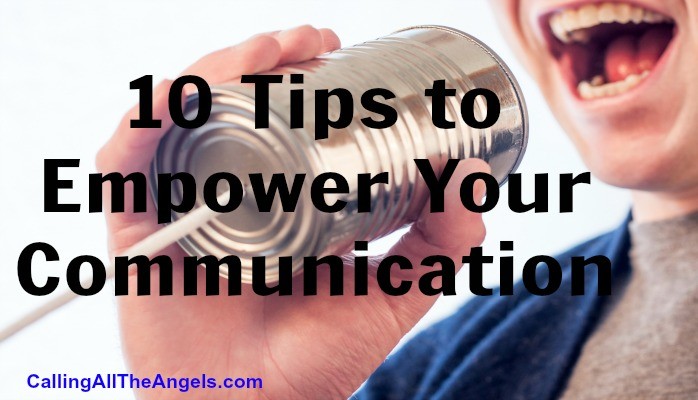Effective communication is an essential skill in both personal and professional life. Let’s explore ten ways to empower your communication.
What You Know
Education is all about learning the basics, but to be an effective speaker, you need to practice what you've learned. My time as a guest at every Toastmasters' meeting taught me that we all have our limitations, but that doesn't mean we can't learn to keep up and share what we know. Start by focusing on your strengths and sharing your knowledge confidently.
Listening
Listening is just as important as asking questions. Sometimes listening to the sound of our own voice can teach us to be a little bit confident with ourselves and to say the things we believe in with conviction. Pay attention to others and practice active listening to enhance your understanding and response.
Humility
We all make mistakes, and sometimes we tend to slur our words, stutter, and probably mispronounce certain words even though we know what they mean but rarely use them. In a group, don't be afraid to ask if you're saying the right word properly. If they're unsure about it, make a joke out of it. It'll make everyone laugh, and you can get away with it as well.
Eye Contact
There's a lot to say when it comes to directing your attention to your audience with an eye-catching gaze. It's important to keep your focus when talking to a large group in a meeting or gathering, even if he or she may be gorgeous. Eye contact builds trust and keeps your audience engaged.
Kidding Around
A little bit of humor can do wonders to lift the tension, or worse, boredom when making your speech. That way, you'll get the attention of the majority of the crowd, and they'll feel that you're just as approachable and as human as those who listen. Humor makes your speech more relatable and memorable.
Be Like the Rest of Them
Interaction is all about mingling with other people. You'll get a lot of ideas and learn what makes people who they are. Engaging with others broadens your perspective and improves your communication skills.
Me, Myself, and I
Admit it, there are times you sing to yourself in the shower. I know I do! Listening to the sound of your own voice while you practice your speech in front of a mirror can help correct the stress areas of your pitch. And while you're at it, you can spruce up as well. Self-practice is essential for honing your speaking skills.
With a Smile
A smile says it all, much like eye contact. There's no point in grimacing or frowning in a meeting or gathering unless it's a wake. You can better express what you're saying when you smile. A smile makes you appear more approachable and confident.
A Role Model
There must be at least one or two people in your life you have listened to at a public gathering or maybe at church. Sure, they read their lines, but taking a mental note of how they emphasize what they say can help you once you take center stage. Observing and learning from effective speakers can significantly improve your own skills.
Preparation
Make the best out of preparation rather than just scribbling notes in a hurried panic. Some people like to write things down on index cards, while others resort to being a little more silly as they look at their notes written on the palm of their hand (not for clammy hands, please). Just be comfortable with what you know since you enjoy your work. Thorough preparation helps you deliver your message confidently and clearly.
These suggestions may seem amateurish, but I’ve learned to empower myself when it comes to public or private speaking. It never hurts to be with people and listen to how they make conversations and meetings far more enjoyable and educational. So, embrace these tips, practice regularly, and watch your communication skills soar.
FAQs
How can I improve my communication skills?
Start by practicing active listening, maintaining eye contact, and speaking with confidence. Join groups like Toastmasters to get regular practice and feedback.
What should I do if I make a mistake while speaking?
Embrace your mistake with humility and humor. Acknowledge it, make a light joke if appropriate, and move on. Your audience will appreciate your authenticity.
How important is eye contact in communication?
Eye contact is crucial as it builds trust and keeps your audience engaged. It shows that you are confident and attentive to your listeners.
How can humor improve my speaking skills?
Humor can make your speech more relatable and memorable. It helps to break the ice, reduce tension, and keep your audience interested.
What are some effective preparation techniques?
Prepare thoroughly by writing down key points, practicing in front of a mirror, and doing dry runs. Use tools like index cards for prompts and ensure you are comfortable with your material.




